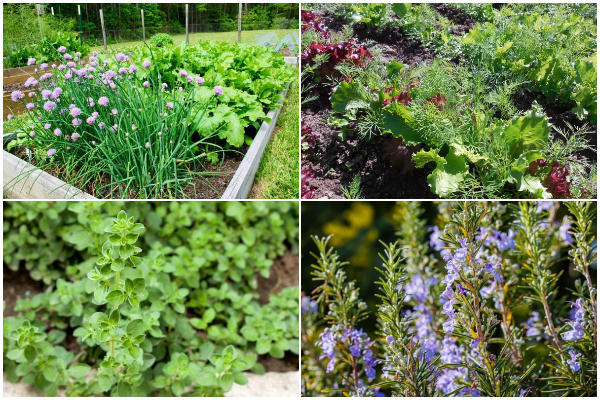Creating a thriving vegetable garden is about more than just planting seeds—it’s about cultivating a balanced ecosystem where plants support each other. Companion planting is a time-tested strategy that pairs certain herbs with vegetables to enhance growth, boost productivity, and intensify flavors.
By choosing the right herbs, you can naturally ward off pests, attract pollinators, and even improve the taste of your harvest. In this article, we’ll delve into the best companion herbs to plant alongside your vegetables, showing you how these powerful pairings can transform your garden into a more productive, flavorful, and resilient space.
1. Dill
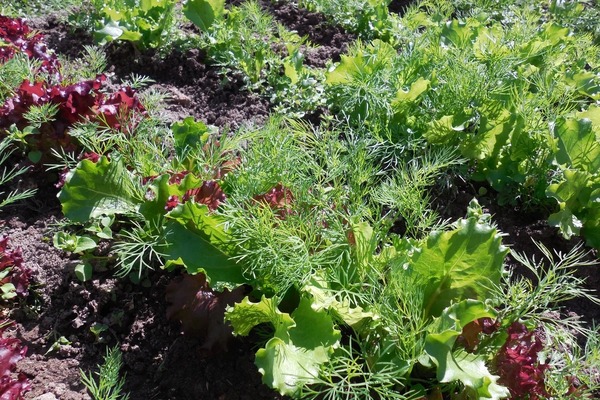
To boost the health and growth of your cabbage plants (brassicas), you can try planting Dill alongside them. The feathery green leaves of this herb attract helpful insects like ladybugs, hoverflies, and predatory wasps, which help control pests that could harm your vegetables.
This fresh, tangy herb also works well with lettuce, onions, and cucumbers, making it an important herb to grow with vegetables. In cooking, dill is widely used to add flavor to pickles, salad dressings, and sauces.
This annual herb thrives in full sun with well-drained soil and easily reseeds itself year after year.
2. Mint
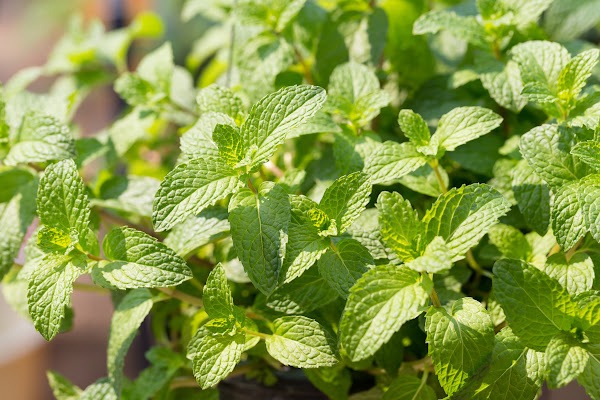
If you are growing vegetables such as cabbage, tomatoes, and peas, mint is a great companion for your garden, as it helps repel pests like cabbage moths, aphids, and flea beetles, keeping these vegetables healthy. It’s also effective at deterring carrot root flies, promoting the healthy growth of carrots.
Many gardeners grow it as a natural way to keep moles out of the garden since the scent bothers them. However, mint is an aggressive grower, so it’s best to plant it in a pot near your vegetables to prevent it from spreading and overwhelming your garden.
Planting mint near peas, cabbage, or tomatoes can enhance their health and flavor. Mint will also thrive if grown alongside broccoli or Brussels sprouts.
3. Parsley
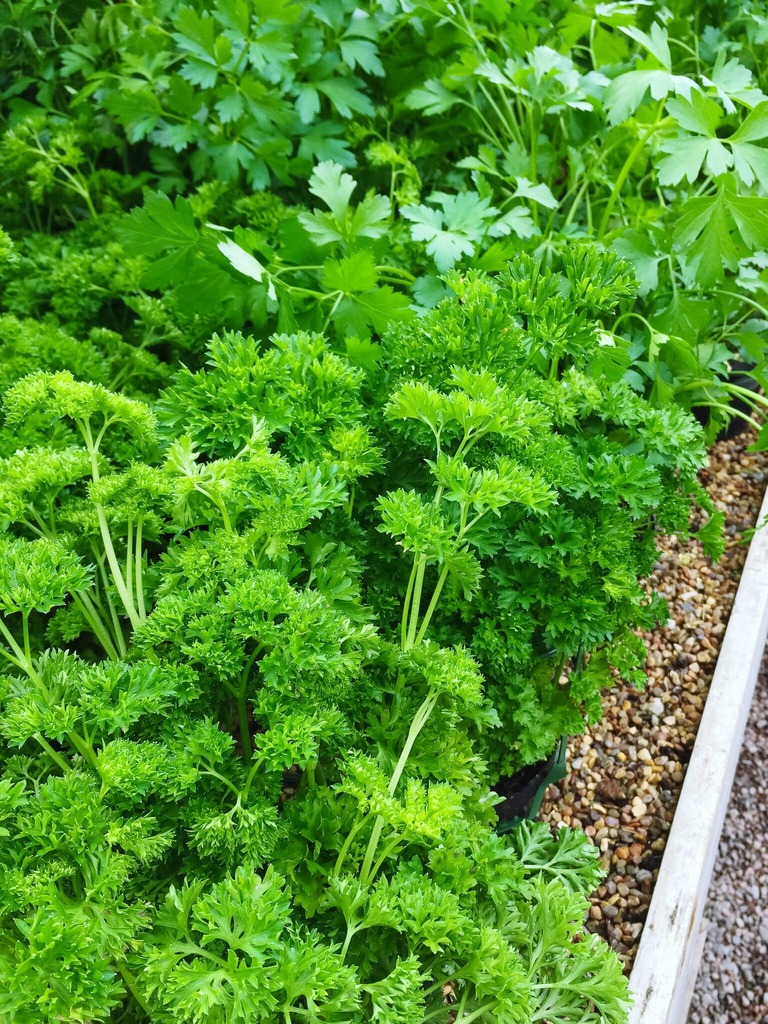
Parsley is an excellent companion plant that promotes the growth of many nearby plants. It pairs well with tomatoes, chives, carrots, corn, peppers, onions, and peas. Even roses benefit from having parsley planted around them, as it can make the flowers smell sweeter.
This nutrient-rich herb helps keep pests like cabbage worms and hornworms away. It also repels some harmful beetles. Parsley attracts beneficial insects like ladybugs, bees, hoverflies, and helpful wasps, which prey on troublesome pests.
The beautiful swallowtail butterfly is also drawn to parsley, laying its eggs on the herb, which encourages a new generation of butterflies to thrive in your garden.
4. Rosemary
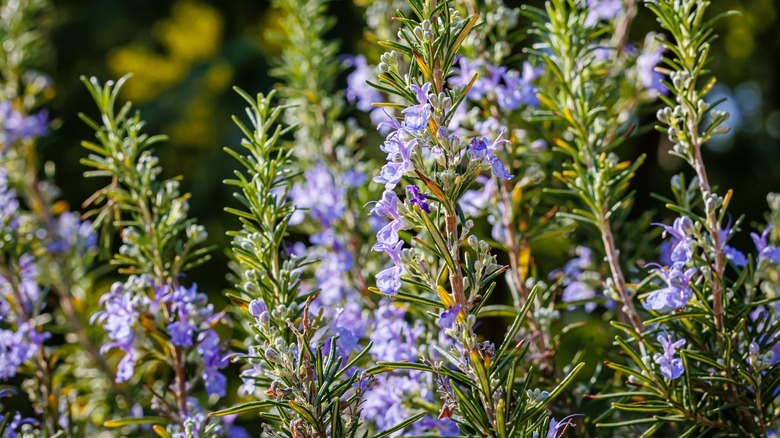
Rosemary is an excellent companion plant for your garden. Its strong, aromatic scent helps deter insect pests. Its scent repels pests like cabbage moths, bean beetles, and carrot rust flies, which also affect brassicas. Growing rosemary in your garden is helpful for these plants: brassicas, beans, carrots, parsnips, and sage
This herb thrives in well-drained soil and full sun. Additionally, rosemary’s woody stems can provide support for sprawling plants. You can also grow it in a pot on your windowsill, terrace, or patio.
5. Chives
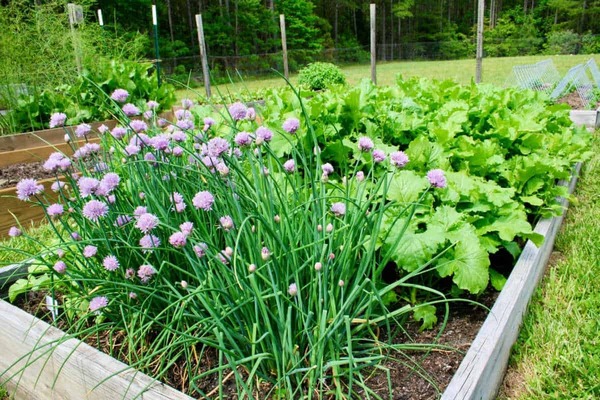
Chives have a mild onion-garlic flavor that is great at keeping pests like spider mites and rust flies away from vegetables like celery, lettuce, peas, carrots, cabbage, broccoli, kale, and grapes.
Growing chives near fruits can be beneficial too, offering help with pollination, pest control, and adding beauty to your garden. Some fruits work well with chives including apple trees, berry bushes, currant bushes, grapevines, peach trees, pear trees, and plum trees, planting them near chives will support healthy growth.
This edible herb thrives in both full sun and partial shade. They can bloom throughout the growing season, so they can bring a beautiful landscape to your house while attracting pollinators and helping your vegetables grow happily.
6. Oregano
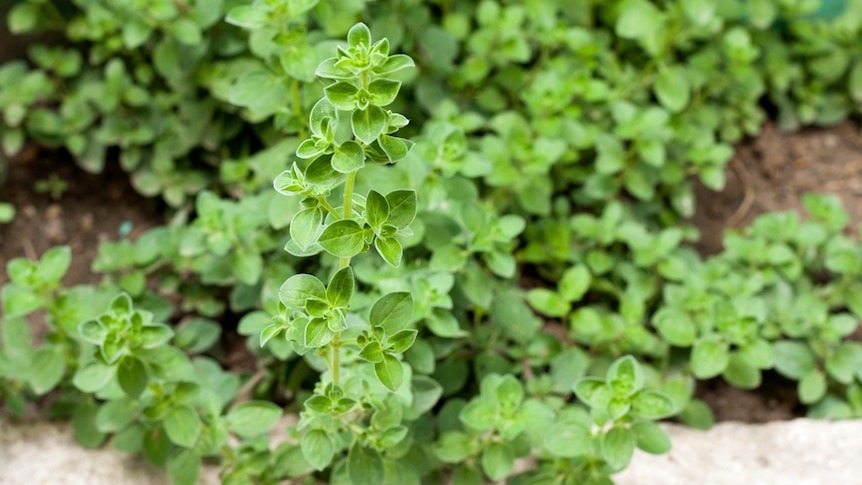
Oregano is a great companion plant because it releases substances from its roots and leaves that keep pests like aphids and cabbage moths away, providing a natural way to control them. Its strong scent also helps by hiding the smells of nearby plants, making it harder for pests to find them. Additionally, oregano attracts helpful insects like bees and butterflies, which are important for pollinating many crops.
This versatile herb goes well with vegetables like tomatoes, peppers, and eggplants. It can also help tomatoes grow taller and have thicker stems.
This hardy herb can grow alongside various vegetables without harming them. It prefers dry, rocky, shallow, and poor soils but does best in well-drained soil with six to eight hours of sunlight daily. You can grow it from seeds, cuttings, or by dividing existing plants.
7. Basil
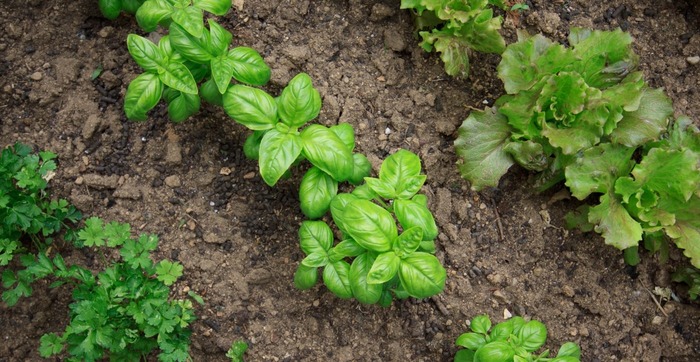
Basil is a great companion for vegetables like tomatoes, peppers, radishes, turnips, carrots, beets, and asparagus. Its strong aromatic oils help repel pests like aphids and whiteflies. Plus, basil attracts beneficial insects like ladybugs and hoverflies, which feed on other pests, keeping your vegetables safe.
This fresh, fragrant herb is a popular annual, loved not only for its own flavor but also for enhancing the taste of the vegetables it grows with!
It can be harvested just a month after planting, but to get the best results, make sure to provide it with rich soil, plenty of water, and full sun.

